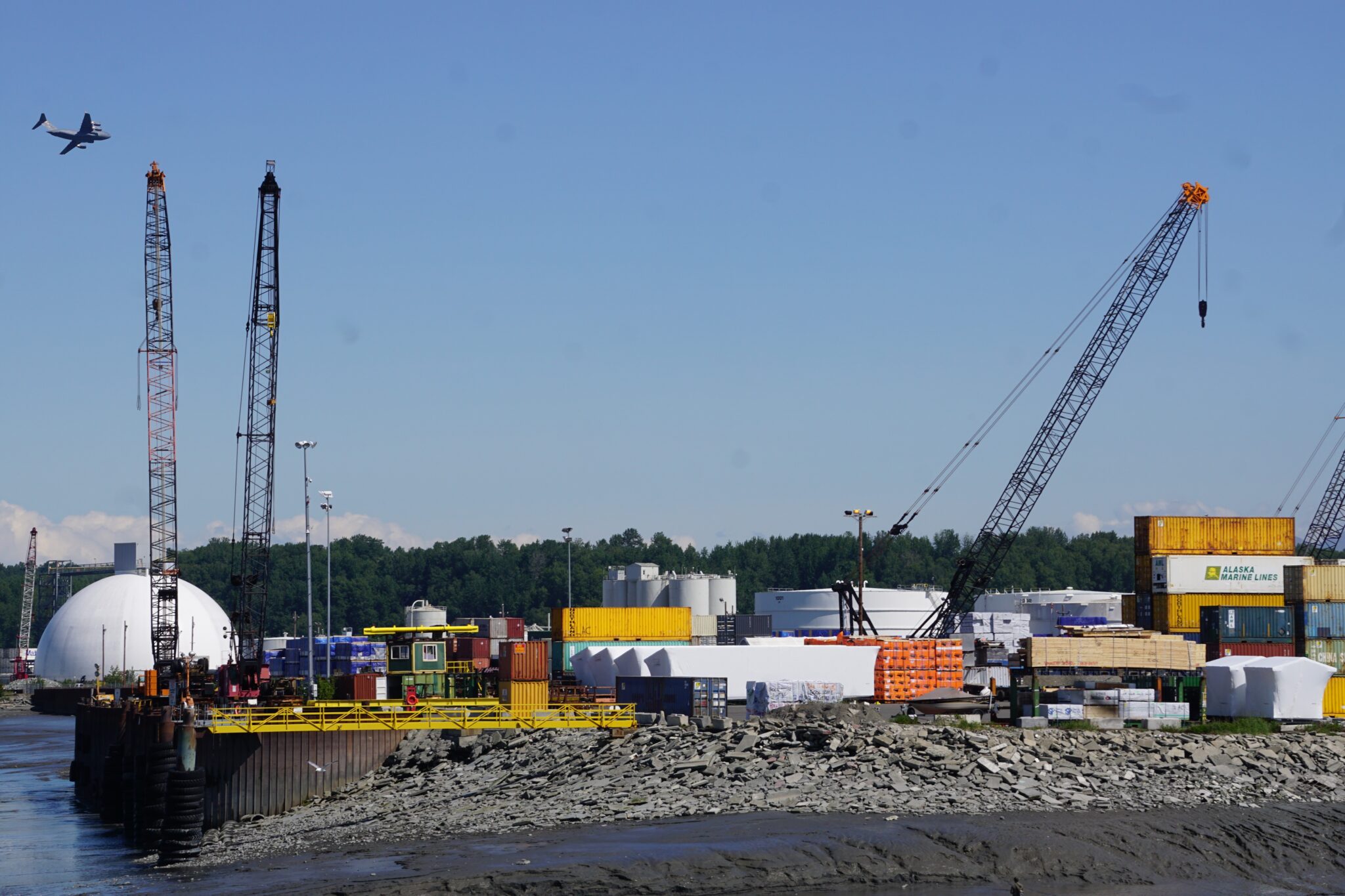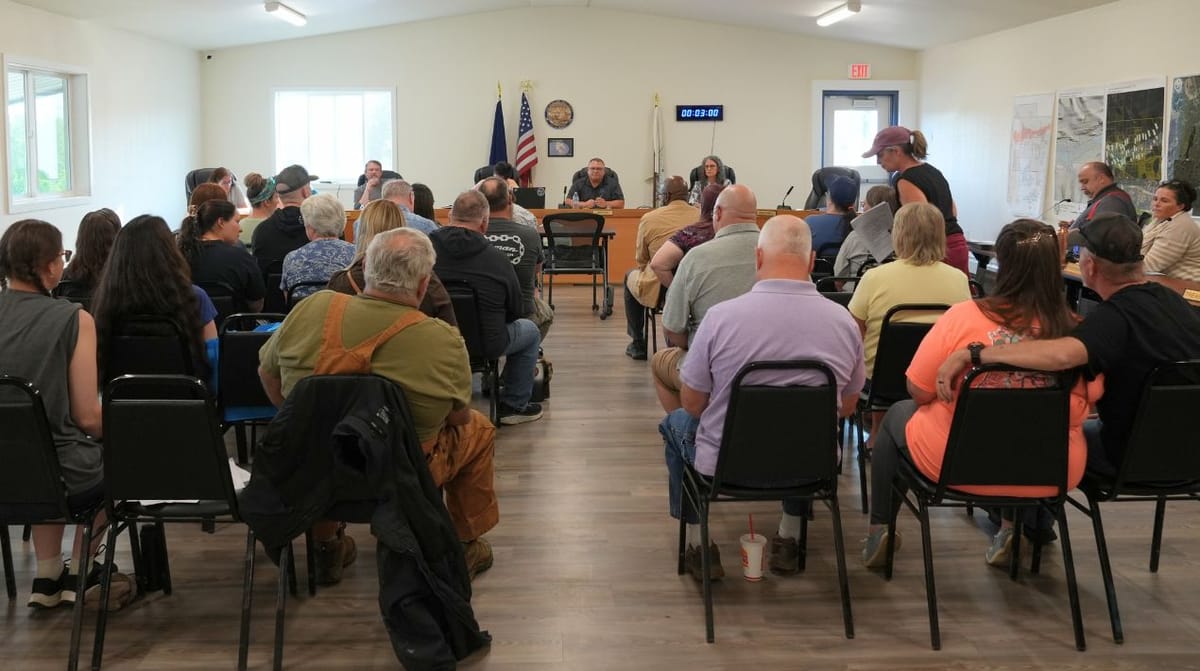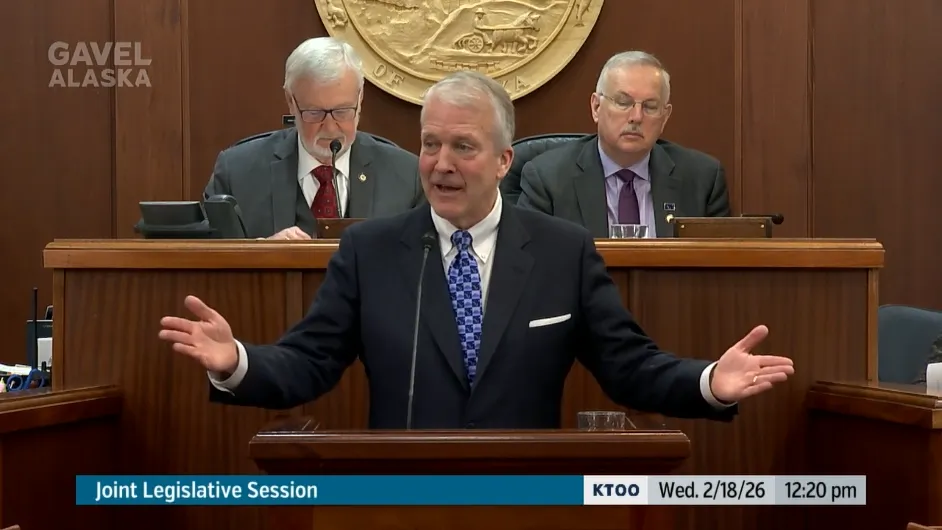Dunleavy's oil tax transparency veto underlines the flaws in Alaska's tax code
Not only does the veto and secrecy raise worries that Dunleavy could be cutting sweetheart deals, but it also shows the system can be gamed.

Happy Friday, Alaska!
In this edition: Alaska Gov. Mike Dunleavy this week vetoed legislation that lawmakers hoped would shine some light on what’s going on with a precipitous drop-off in oil tax payments that started shortly after the governor took office. His veto left legislators wondering what the governor and his administration might be hiding, and whether they’ve settled hundreds of millions of dollars in owed taxes for pennies on the dollar. The whole thing also raises questions about the wisdom of a tax system that gives so much discretion to an executive branch so willing to push the limits of what’s acceptable. Also, the reading list and weekend watching.
Current mood: 😎
Dunleavy's oil tax transparency veto underlines the flaws in Alaska's tax code

Of the many, many lawsuits challenging the constitutionally questionable actions of Gov. Mike Dunleavy and his lackeys over nearly seven years in office, one of the lines that sticks with me the most came from an attorney whose name should just be on the template for lawsuits against the governor: Scott Kendall. At the lawsuit challenging the Division of Elections’ conspicuously special treatment of the initiative to repeal ranked-choice voting, where the Division allowed the right-wing campaign to fix a bunch of petition booklets well after the deadline, Kendall warned the judge about “the danger in the discretion.” That the preferential treatment may – as the courts ultimately found – be within the letter of the law, but it creates a dangerous amount of leverage for political appointees to wield over how the state is run.
“To give the Division that much latitude could be decisive. It was decisive in this case,” he said. “So, you have a division that maybe they’ll bend over backward for a particular petition, maybe they’ll just follow (the regulations) and disqualify it. We can’t allow the Division of Elections to have that kind of latitude.”
A look back over just a few years shows that this warning is not at all rhetorical. The effort to recall Dunleavy was delayed due to bogus roadblocks created by the Department of Law, and several progressive-leaning initiatives also faced undue hurdles to get on the ballot. None received the same kind of kid-glove treatment that the RCV repeal did, and the recourse for those on the losing side of the state’s discretion in applying the laws has been costly and time-intensive litigation, which, in the case of the recall, likely proved fatal when the pandemic put the brakes on the signature-gathering process.
Kendall’s warning about “the danger in the discretion” has been ringing through my head this week following Gov. Mike Dunleavy’s veto of Senate Bill 183, legislation that would have armed the legislative auditor with the power that lawmakers say is needed for her to do her constitutionally outlined duty and get to the bottom of the fall-off in oil tax payments. Legislators, of course, argue she already has that power, but Dunleavy and his Department of Law have disagreed and continued to stonewall the auditors’ efforts, leaving them at a stalemate that benefits a governor who has less than two years left in office.
As Sen. Elvi Gray-Jackson, who has also been fighting to get this information for years through her chairmanship of the Legislative Budget and Audit Committee, put it when discussing the governor’s veto of Senate Bill 183, “They're making it easy for us to wonder, well, What is the problem? What is out there that you don't want us to know?”

The issue stems from Alaska’s complicated tax system, which taxes oil companies on their net profits rather than their total profits. Companies can deduct their expenses against their tax bill, creating an extensive multi-year process where the state audits those expenses and issues assessments that cover unpaid taxes, which can then be paid, appealed or settled (this is where the discretion could come in). Our last look at the assessments showed the state regularly identified tens to hundreds of millions of dollars in back taxes, as well as the industry's limited success in reducing those amounts through appeals and settlements.

By and large, the state was receiving or was on its way to receiving what it was due, with the fully resolved year showing that the state would get about two-thirds of the back taxes after the appeals and settlement process.
But then, a year into Dunleavy’s first term, that information was abruptly cut off, leaving legislators in the dark about the outcome of those assessments. The one place where they could glean some insight into what was happening was through the deposits to the state’s Constitutional Budget Reserve, which indicated a precipitous drop-off.
The payments dropped from hundreds of millions of dollars to as little as $200,000 in the most recent year, a difference greater than what legislators battled mightily to invest in schools this legislative session.
The cause of those drop-offs is unclear as long as the auditor can’t access the records that the Dunleavy administration argues it has no duty to compile or release. Either something turned upside down in the economics of oil and gas production in the state (somewhat possible given the drop-off in oil prices), the oil companies suddenly stopped pushing the boundaries of allowable expenses (well before Dunleavy took office, because these things take years to resolve) or the Dunleavy administration is cutting sweetheart deals by either looking the other way on the industry’s favorable reading of the state’s tax law or by settling multimillion-dollar asssessments for pennies on the dollar.
“We see the numbers for the tax settlement start to drop precipitously, from $250 million down to like $4 million and people are saying, Wait, this is not only is this just a matter of, making sure the numbers are correct, this is a matter of potentially hundreds of millions of dollars losses to the state,” longtime oil industry critic Sen. Bill Wielechowski, who helped author SB183, told me. “Are there sweetheart deals being struck, and why, all of a sudden, is the Dunleavy administration hiding this information?”

Wielechowski said the oil industry, like all businesses, can be expected to push the limits of what’s an allowable expense on their taxes, but the state needs to take an active role in reviewing those expenses. He recalled one case where an oil company deducted the cost of steak dinners in Texas and rental cars in London against its Alaska production taxes, and said there is little reason to believe that things have changed.
“Is it possible? Yes,” he said. “Is it probable? I'd say it'd have to be an extremely unusual set of circumstances. It would almost have to be for the first time in state history that the oil industry is providing us with completely clean accounting information, and that’s not to diminish the industry or anything … But historically, when you look at the numbers that have resulted from the tax settlements and royalty settlements, what you find is that, yeah, the industry has taken an oil industry-friendly interpretation of the law every time. And now, all of a sudden, in the last three or four years, they're not doing that anymore?”
Wielechowski said there’s some merit to the state’s complicated tax system, which ostensibly gives the state more insight into the operations of one of its major economic drivers, but it ultimately comes down to who is at the helm and making the decisions. It works if the state is a bulldog in getting what it is due under the law, but it is a big loser if it rolls over.
“You have to have the staff and the team and the leadership that is willing and able to conduct appropriate audits,” he said, adding, “It has been proven that we cannot manage a net profit structure. Yeah, we are getting gamed. If this isn't proof, I don't know what is.”
Well, there is one bit of firmer proof.
There’s a social media post floating around from former Department of Revenue official that claims Department of Revenue Commissioner and rumored gubernatorial hopeful Adam Crum “told me point blank that he expected me to violate statute to enrich oil companies on public money they weren’t legally entitled to – sounded like they proimised to donate to his 2026 election bid.”
Wielechowski said he and other legislators are aware of the claims and that it rang a lot of alarm bells in Juneau. He said, though, it’s still difficult to act on when so many levers of accountability are at the discretion of the Dunleavy administration. Dunleavy’s administration has also taken an aggressive stance against public records requests, frequently claiming broad privilege over communications and records.
“We all know that there are certain administrations that bend over backwards for the industry, but it seems like Crum has just gone so far over the acceptable limits,” Wielechowski said, “But how do you prove it? This is the problem: we have some of the worst transparency laws in the world … and our tax system is structured in such a way that the state of Alaska loses in every instance. We lose at low oil prices, we lose at mid-range oil prices, we lose at high oil prices.”
It's unclear just what will come next. The Legislative Budget and Audit Committee will meet on June 30, and Gray-Jackson said the issue will be brought up there, including possible next steps. Legislators also have a good chance of overriding the veto when they return to the session, as SB 183 passed with broad bipartisan support, with several conservative Republicans also raising questions.
Still, that process will take time – it's not out of the realm of possibility that Dunelavy would just ignore the law anyway, claiming it's unconstitutional and miring the whole case in the courts – meaning that any clarity on what has been happening will likely come well after Dunleavy’s time in office has ended.
In the long term, Wielechowski said the situation ought to renew discussions about the shape of Alaska’s oil and gas tax system. He said this situation has proven that there’s far too much discretion for an oil-friendly executive branch to bend the rules at the state’s expense. However, that will likely have to wait until Dunleavy leaves the office – and the veto pen – behind at the end of his term.
“When you have an executive branch that is tipping the scales in favor of the oil industry against the people of Alaska, then this is exactly what we were worried about,” he said, referencing concerns raised by some when the state adopted the net profits tax over the gross profits tax, adding, “This is an abomination of what a tax structure should be.”
Stay tuned.
The reading list






Weekend watching
Ashly Burch is one of the OGs of making funny video game skits on YouTube, turning that into an acting career in both big-ticket video games and critically acclaimed television. Her latest project, "I'm Happy You're Here," tackles mental health issues in an irreverent and on-the-mark Muppet-y world. Her first one is about generalized anxiety disorders, and it's just really uplifting at a time when there's plenty to be anxious about.
Have a nice weekend, y'all.
The Alaska Memo Newsletter
Join the newsletter to receive the latest updates in your inbox.










